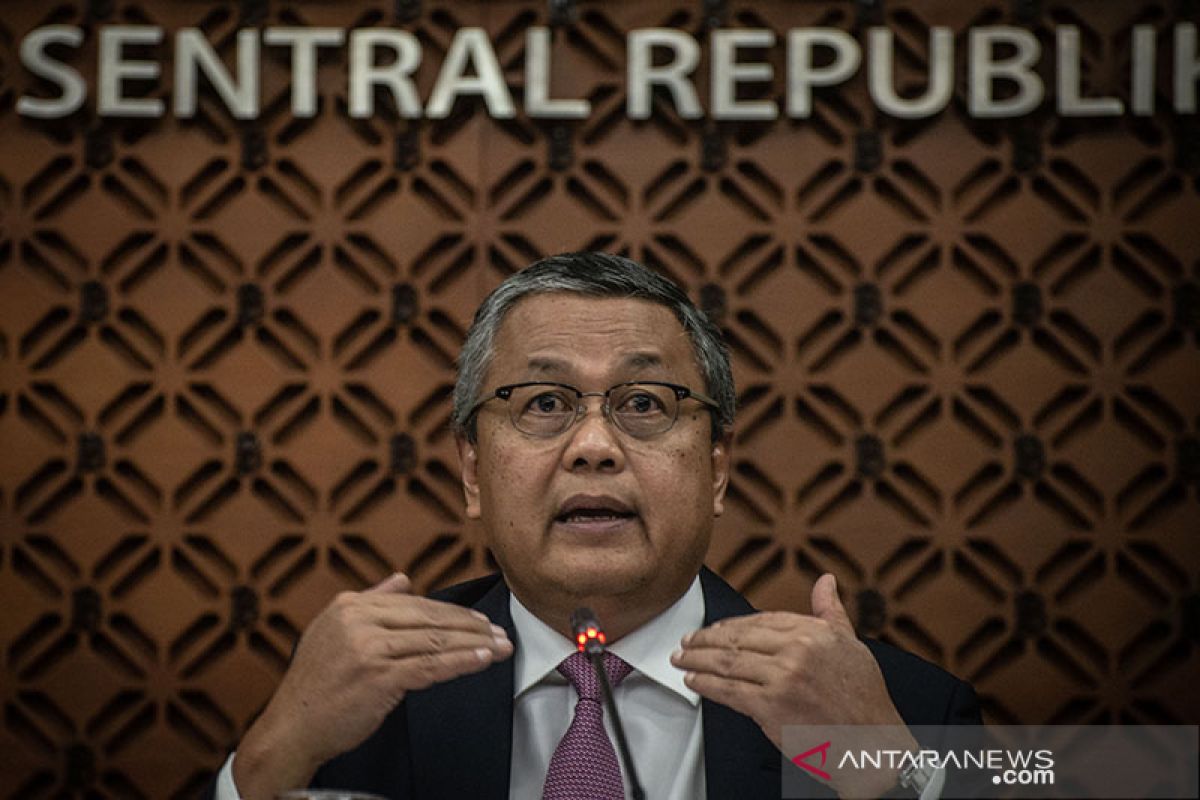This is controlled inflation and is lower than that recorded in the previous week or monthJakarta (ANTARA) - Bank Indonesia (BI) estimated that the inflation rate in April 2020 will touch 0.18 percent based on results of a weekly price monitoring survey by 46 representative offices of the central bank across the nation.
"This is controlled inflation and is lower than that recorded in the previous week or month," BI Governor Perry Warjiyo noted in an online press statement in Jakarta on Wednesday.
Warjiyo attributed the low inflation to two factors -- the availability of resources to fulfill basic needs and the demand that declined owing to the enactment of large-scale social restrictions (PSBB) in several regions to fight the spread of COVID-19.
Hence, the BI governor believes the inflation rate ahead of Ramadan this year is lower in comparison with the annual historical patterns.
On an annual basis, the April inflation rate also dropped to 2.78 percent, from 2.96 percent in March and 2.98 percent in February.
On the basis of results of BI’s monitoring, several commodities still contribute to inflation, with shallots contributing 0.12 percent; gold jewelry, 0.09 percent; oranges, 0.05 percent; and sugar, 0.02 percent.
However, commodities whose prices dropped and contributed to deflation comprised red chili, 0.11 percent, and chicken meat, 0.08 percent.
In the meantime, the National Strategic Food Price Information Center (PIHPS), on its website on Wednesday, showed an average price for red cayenne pepper to reach Rp39,500 per kilogram, down 6.62 percent at Rp2,800.
Meanwhile, the price of large red chili reached Rp33,650 per kilogram or decreased by 1.75 percent, or Rp600; curly red chili, by Rp31,350 per kilogram, or dropped by 2.34 percent, or Rp750; and freshly purebred chicken meat, Rp28,500 per kilogram.
Indonesia's official reserve assets stood at US$121 billion, as of March-end 2020, $9.4 billion lower, from $130.4 billion recorded at the end of February 2020.
The position of official reserve assets was equivalent to finance 7.2 months of imports or seven months of imports and servicing government’s external debt, which is well above the international adequacy standard of three months of imports, Executive Director of the BI Communication Department Onny Widjanarko noted in a statement in Jakarta, Tuesday.
According to BI, the official reserve assets are sufficient to finance import and debt service payments as well as the need to stabilize the rupiah exchange rate.
The decline in official reserve assets in March 2020 was influenced by factors including the government external debt payments and stabilization of the rupiah exchange rate amid extraordinary conditions owing to panic in global financial markets triggered by the rapid and widespread effect of the COVID-19 pandemic globally. Related news: Inflation to touch 0.18% in April, Central Bank forecasts
Related news: Indonesia's inflation under control, at 0.10 percent in March 2020
EDITED BY INE
Translator: Dewa Ketut, Azis Kurmala
Editor: Fardah Assegaf
Copyright © ANTARA 2020












